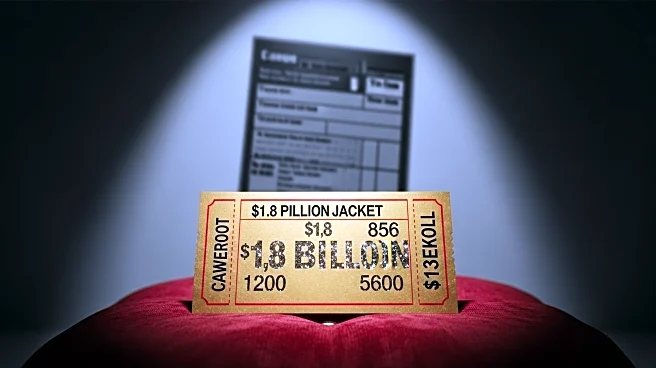What's Happening?
The Powerball jackpot for the upcoming Saturday drawing has surged to $1.8 billion, marking it as the second-largest prize in U.S. lottery history. The jackpot amount is applicable for a single-winning ticket opting for the annuity payment over 30 years. However, most winners prefer the cash option, which amounts to $826.4 million before taxes. Federal taxes automatically deduct 24% from winnings over $5,000, reducing the cash prize to approximately $628 million. Additional federal taxes are due when filing returns, as lottery winnings place recipients in the top tax bracket of 37%, further reducing the prize to $520.6 million. State taxes vary, with some states imposing no tax on lottery winnings.
Why It's Important?
The significant tax implications for lottery winners highlight the complexities of managing large windfalls. Winners must navigate federal and state tax obligations, which can substantially reduce the net amount received. This situation underscores the importance of financial planning and professional advice for lottery winners to maximize their earnings and avoid potential pitfalls such as gift taxes or mismanagement of funds. The event also draws attention to the broader economic impact of lottery winnings, including potential changes in consumer spending and investment behaviors.
What's Next?
Winners are advised to consult with tax professionals, financial advisors, and estate planning attorneys to ensure optimal management of their winnings. Those opting for annuity payments may have more flexibility in tax planning. The IRS and state tax authorities will continue to play a significant role in determining the final amount winners receive. Additionally, the outcome of the drawing may influence public interest in lottery participation and discussions around tax policies related to gambling winnings.










